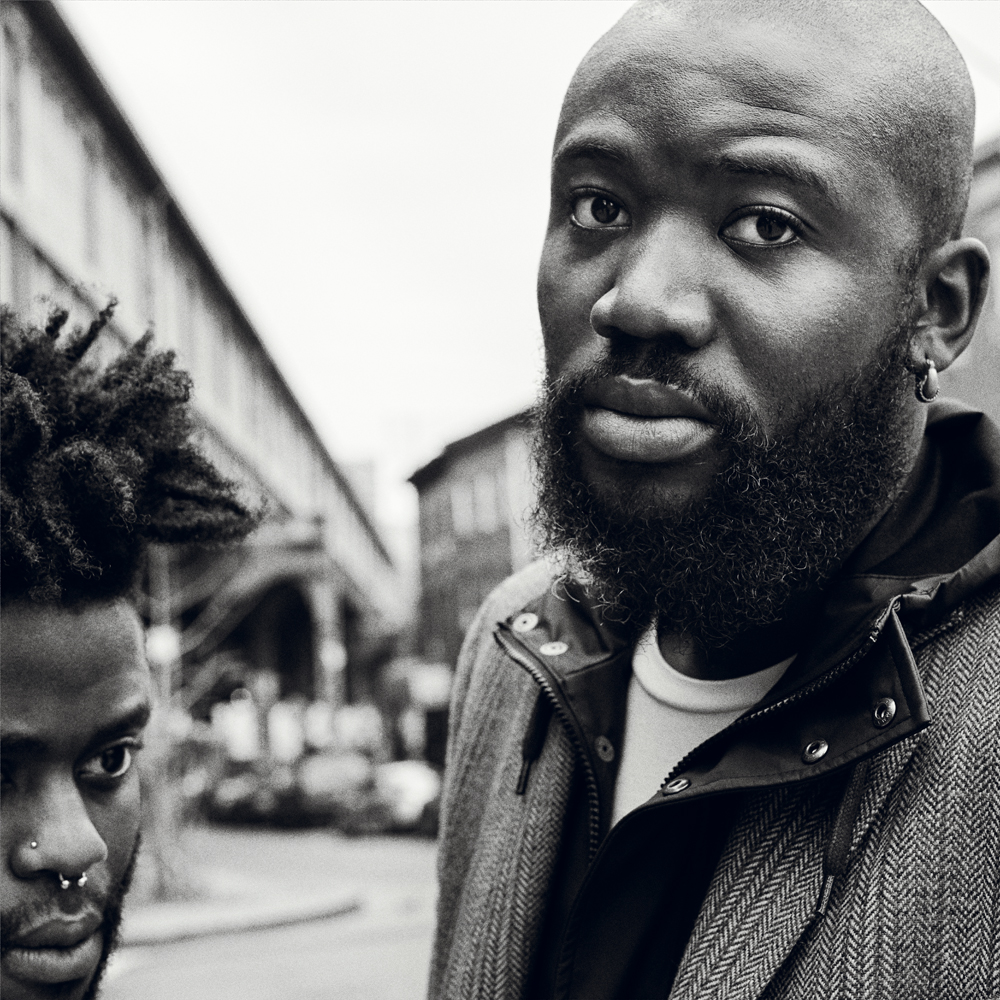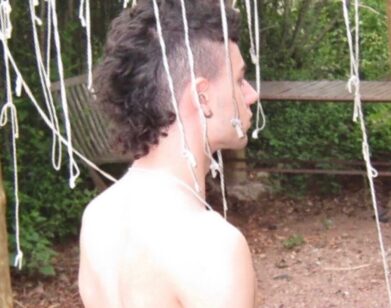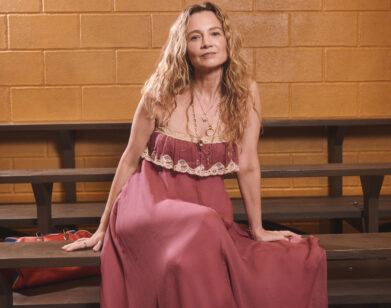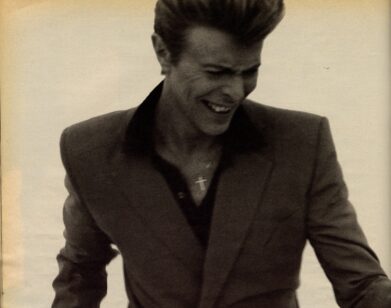Young Fathers
Young Fathers‘ Alloysious Massaquoi, Kayus Bankole, and Graham “G” Hastings, all 27, first met 13 years ago at a local all-ages night in Edinburgh, Scotland. Massaquoi and Bankole were already friends from school, and Hastings wanted in. “I couldn’t believe that the guys were able to dance and no one was going to punch them,” he says while waiting to go onstage at Brooklyn’s Music Hall of Williamsburg. “That was my first impression: ‘I want to be like these guys.’ ”
The trio started making music together shortly after, recording tracks on an old karaoke machine at Hastings’s house with the microphone hanging off the top of a closet. The name Young Fathers references that they are all named after their fathers as well as their mature, serious demeanor. “There was never a point where we were just in it for a laugh,” says Hastings. “The objective was always to make a good song. And that’s why we’re together today—to make a good song.”
Massaquoi and Bankole were both raised in religious, immigrant households, and their personal histories infiltrate the group’s music, which can’t be easily classified, but falls somewhere between experimental hip-hop and modern, TV on the Radio-esque dream pop. Their second album, White Men Are Black Men Too, which came out in April, opens with the line “Tonight I don’t love God.” Over the course of its 12 tracks—which range from contemplative pop (“27,” “Rain or Shine”) to rap mixed with jarring, industrial beats (“Old Rock n Roll”) to soulful near-ballads (“Dare Me”)—the trio explores weighty themes such as the confines of racial identity and social norms (“I’m tired of playing the good black / I’m tired of having to hold back”) and religious disaffection (“I’ll put the blame on you / When God is dead”). “I come from a place where religion is what gets people going, but I’ve never seen it as a bad thing or a good thing,” says Bankole. “My mum’s a born-again Christian, but she’s never imposed it on me,” adds Massaquoi. “I’ve just accepted it for what it is: some people need it; other people don’t.”
Last year, the Scottish group won the Mercury Prize, the British Isles’ most prestigious music award, for their genre-transcending debut album, Dead, beating out the likes of FKA Twigs and Damon Albarn. Success, however, has not made them complacent. “We want as many ears as possible,” says Hastings. “We have more ears than we had, but there are a lot of people who don’t know who we are who should, not just because it’s our band, but because socially and culturally, mainstream music shouldn’t be so fucking repetitive and boring.” “It’s about time for them to stop playing it safe,” adds Bankole.
“Pop could be dead,” says Massaquoi. “This is its last hurrah, and we might be the last pop band. That’s what it feels like now.”







